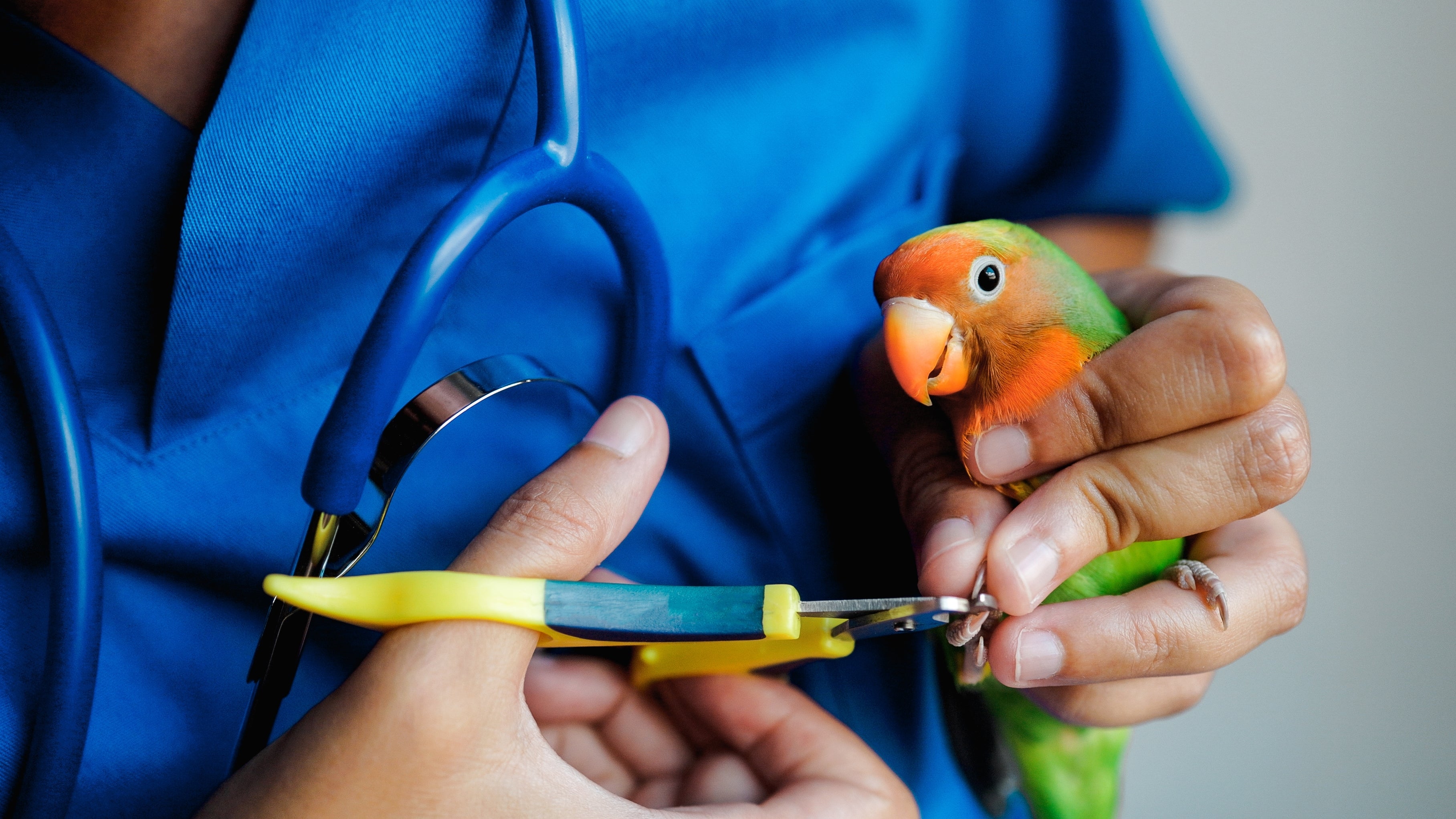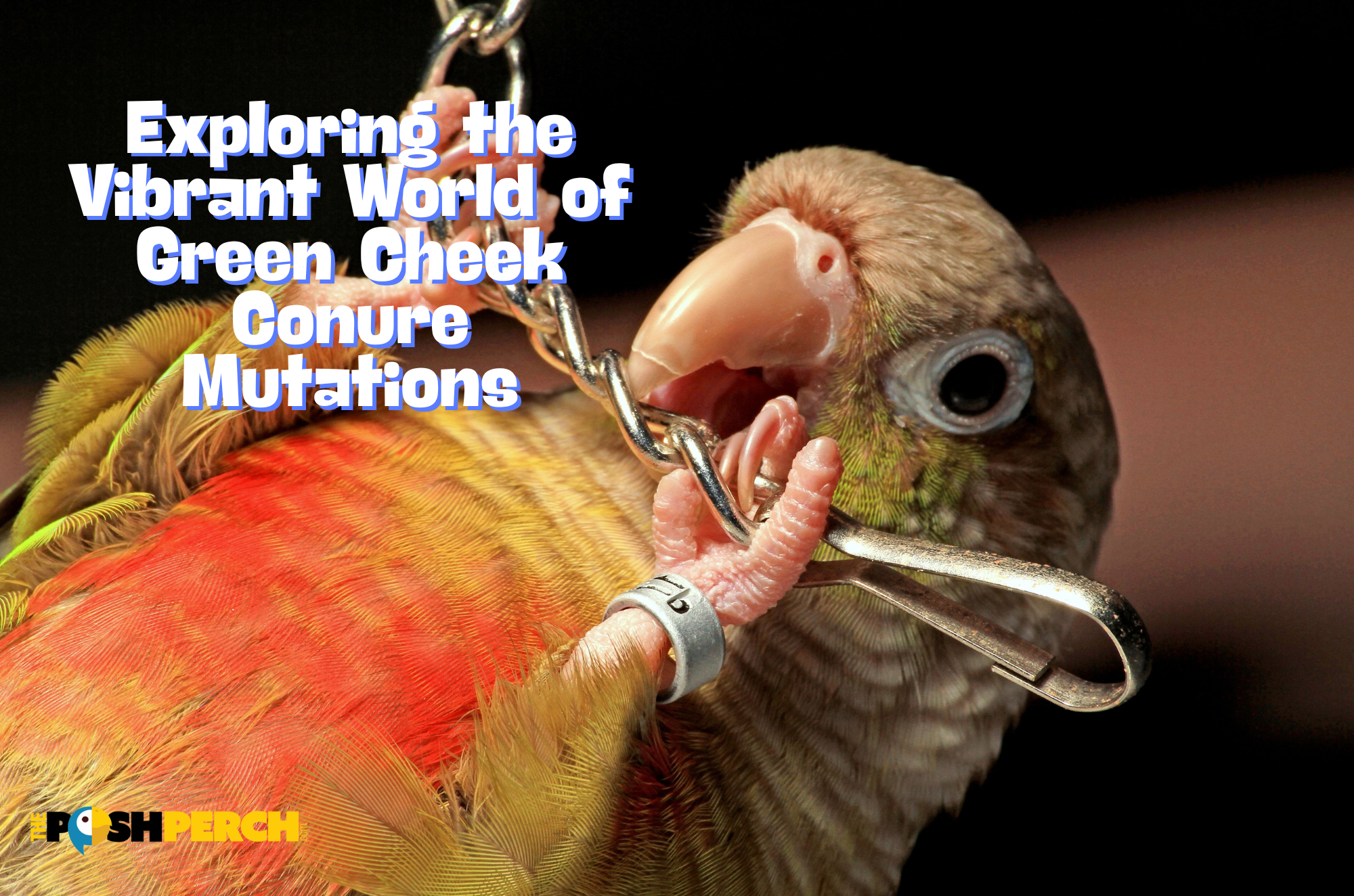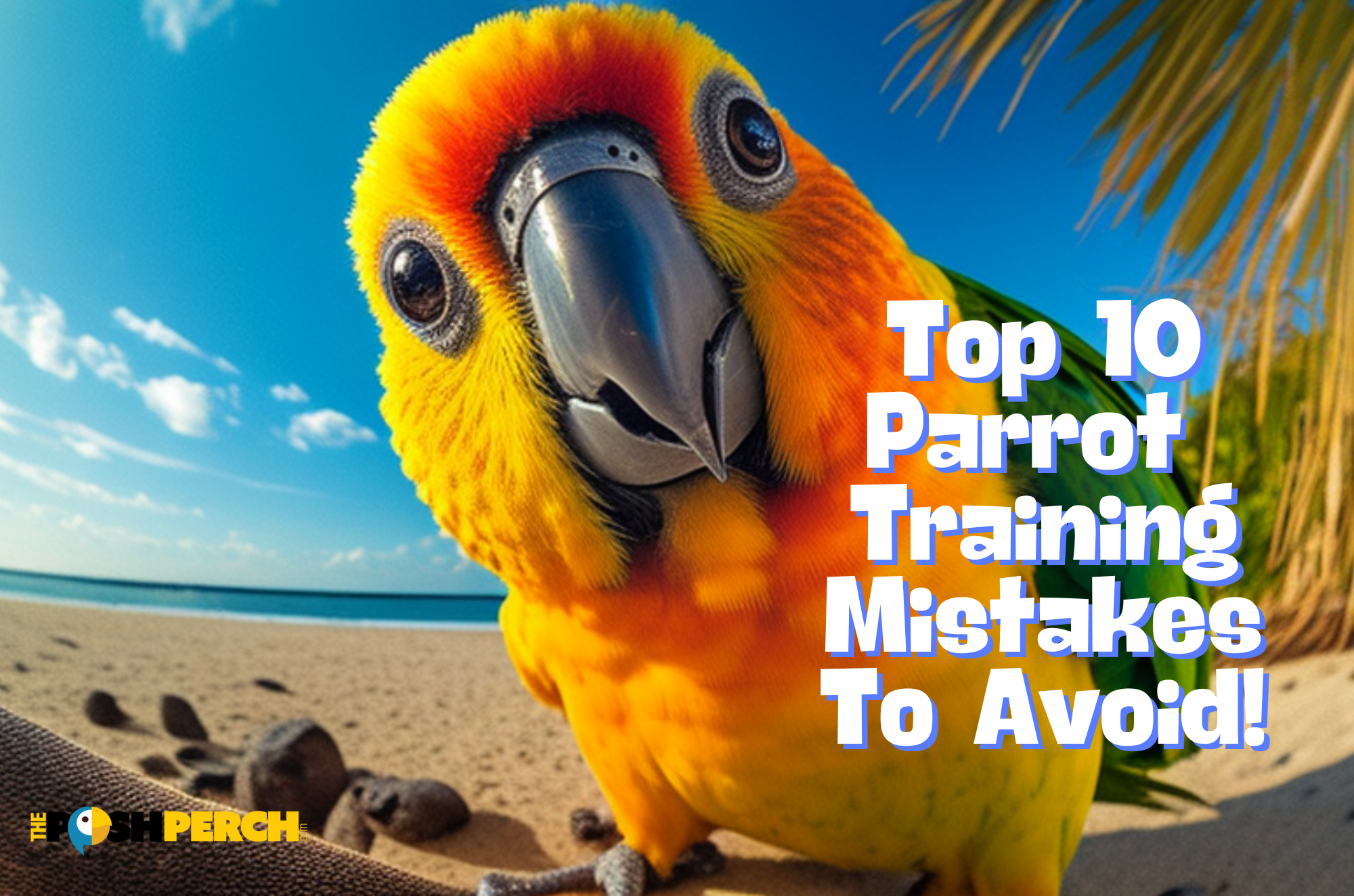
The Ultimate Guide to Senegal Parrot Care: Tips and Strategies for Keeping Your Feathered Friend Happy and Healthy
9 min reading time

9 min reading time
Senegal parrots are known for their vibrant plumage, playful nature, and ability to mimic human speech. However, their care requirements can be quite specific, so it's important to be well-informed. From creating the perfect living environment to providing a balanced diet, we'll cover every aspect of caring for your Senegal parrot.
In this guide, you'll learn about the ideal cage setup, necessary toys and mental stimulation, proper nutrition, handling techniques, and common health issues to watch out for. Whether you're a first-time owner or have had experience with parrots before, this guide will serve as your go-to resource for everything Senegal parrot care.
So, let's dive in and discover the best practices for keeping your Senegal parrot happy, healthy, and thriving!
Proper care for Senegal parrots is vital to ensure their overall well-being and longevity. These intelligent birds require a stimulating and enriching environment, a balanced diet, and regular veterinary check-ups. Neglecting their care needs can lead to behavior problems, health issues, and a decline in their overall quality of life.
Senegal parrots are highly social creatures and crave interaction with their human companions. They thrive on mental stimulation, and without it, they can become bored, frustrated, and develop destructive behaviors. Providing them with a suitable living environment, proper nutrition, and mental and physical stimulation will help prevent these issues and ensure a happy and healthy life for your feathered friend.
When it comes to creating a suitable living environment for your Senegal parrot, there are a few key factors to consider. First and foremost, the size and design of the cage play a crucial role in their well-being. The cage should be spacious enough to allow your parrot to stretch its wings, climb, and move around comfortably. A minimum cage size of 24x24x24 inches is recommended, but the bigger, the better.
It's important to choose a cage made of safe and non-toxic materials, such as stainless steel or powder-coated metal. Avoid cages with lead-based paint or zinc-coated wires, as these can be harmful to your bird's health. The cage should also have secure latches and locks to prevent any accidental escapes.
Inside the cage, provide perches of various sizes and textures to exercise your parrot's feet and help maintain their nail health. Natural wood perches are a great choice, as they provide a more comfortable and natural grip. Place the perches at different heights to encourage climbing and jumping.
Senegal parrots are highly intelligent and require mental and physical stimulation to thrive. Without proper enrichment, they can become bored, which may lead to behavioral issues. To keep your parrot engaged and stimulated, consider providing a variety of toys, puzzles, and foraging opportunities.
Toys that encourage natural behaviors, such as chewing, shredding, and climbing, are ideal for Senegal parrots. Rotate the toys regularly to prevent boredom and provide new challenges. Puzzle toys that require problem-solving skills can also keep your parrot mentally stimulated and entertained.
In addition to toys, provide your Senegal parrot with opportunities for interactive playtime outside of the cage. This can include supervised time outside the cage, flight training, or teaching them simple tricks. Regular social interaction with their human companions is also essential for their well-being.
A balanced diet is crucial for the health and longevity of your Senegal parrot. In the wild, these birds primarily feed on fruits, vegetables, seeds, nuts, and some insects. To mimic their natural diet, it's important to provide a variety of fresh and nutritious foods to ensure they receive all the necessary vitamins and minerals.
A high-quality pellet diet should be the foundation of your Senegal parrot's diet. Look for pellets specifically formulated for medium-sized parrots, as they contain the appropriate balance of nutrients. Pellets should make up about 70-80% of their daily food intake.
In addition to pellets, offer a variety of fresh fruits and vegetables daily. Dark leafy greens, carrots, bell peppers, broccoli, and berries are excellent choices. Avoid feeding your parrot avocado, chocolate, caffeine, alcohol, and any toxic foods. It's also important to wash fruits and vegetables thoroughly to remove any pesticides or chemicals.
Fresh, clean water should be available to your Senegal parrot at all times. Change the water daily to ensure its freshness. Additionally, provide occasional treats to add variety and enjoyment to their diet. Healthy treats can include small amounts of nuts, seeds, or natural fruit treats specifically made for parrots. However, treats should only make up a small portion of their overall diet.
Building trust and a strong bond with your Senegal parrot is essential for their well-being and your relationship. These birds are highly social and crave attention and interaction. Here are some tips to help you build trust and develop a strong bond with your feathered friend:
🦜 Spend quality time with your parrot daily. Interact, talk, and play with them to establish a connection.
🦜 Use positive reinforcement techniques, such as treats and praise, to reward desired behaviors.
🦜 Approach your parrot calmly and avoid sudden movements that may startle them.
🦜 Respect their personal space and avoid forcing interactions if they are not comfortable.
🦜 Be patient and consistent in your interactions. Building trust takes time and effort.
Regular grooming and hygiene practices are essential for the well-being of your Senegal parrot. Here are some important aspects to consider:
🦜 Nail trimming: Trim your parrot's nails regularly to prevent overgrowth and potential injuries. Consult a veterinarian or an experienced avian groomer for guidance.
🦜 Wing clipping: Wing clipping can prevent your parrot from flying off and potentially injuring themselves. However, it's important to consult a professional for proper wing clipping techniques.
🦜 Bathing: Senegal parrots enjoy bathing to keep their feathers clean and healthy. Provide a shallow dish of water or a misting spray bottle for them to bathe in. Ensure the water is at a comfortable temperature, and supervise them during bath time.
Training your Senegal parrot can be a rewarding and enriching experience for both of you. Positive reinforcement techniques, such as clicker training and target training, can be highly effective in teaching your parrot new behaviors and tricks. Here are some tips for successful training sessions:
🦜 Start with simple commands and gradually increase the difficulty level.
🦜 Use small, tasty treats as rewards to motivate your parrot.
🦜 Keep training sessions short and frequent to maintain your parrot's interest and attention span.
🦜 Be patient and consistent in your training approach.
🦜 Always end training sessions on a positive note, even if progress is slow.
Proper care is crucial for the well-being and happiness of your Senegal parrot. From creating a suitable living environment to providing a balanced diet and mental stimulation, every aspect of their care plays a vital role. Building trust and a strong bond with your parrot, along with regular veterinary check-ups, will ensure they have a long and happy life.
Remember to provide your parrot with plenty of opportunities for social interaction, mental stimulation, and physical exercise. Regularly assess their health and address any potential issues promptly. With the right care and attention, your Senegal parrot will be a delightful companion for many years to come. So, embrace the responsibility of being a parrot owner and enjoy the rewarding journey of caring for these incredible birds!


